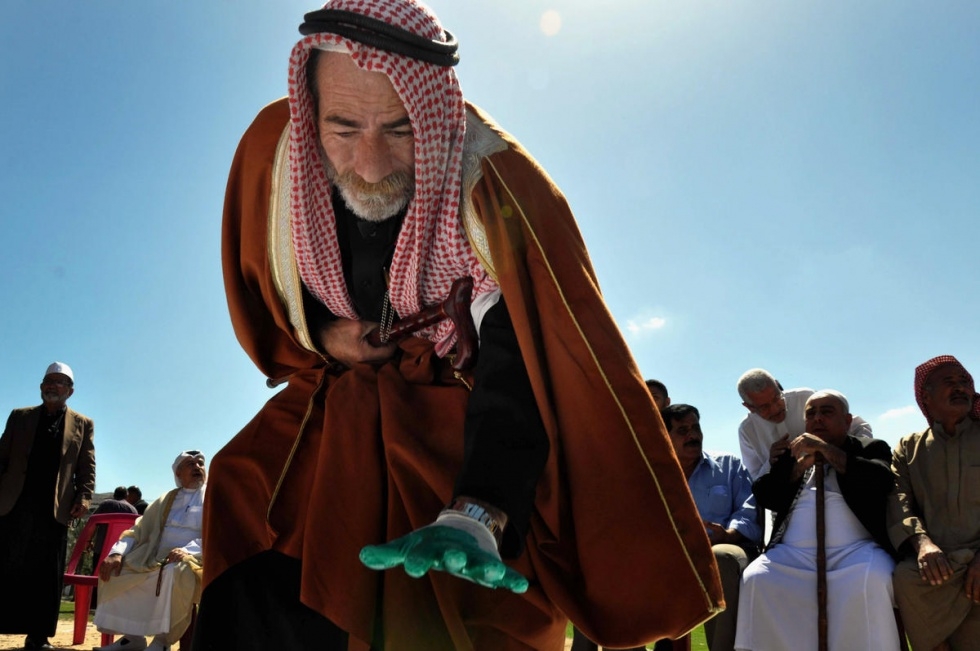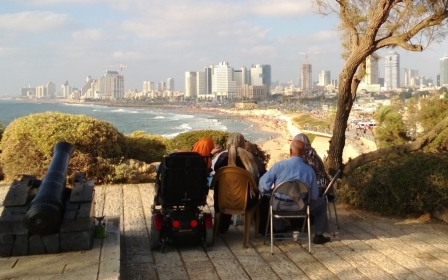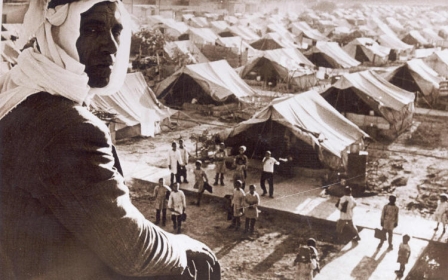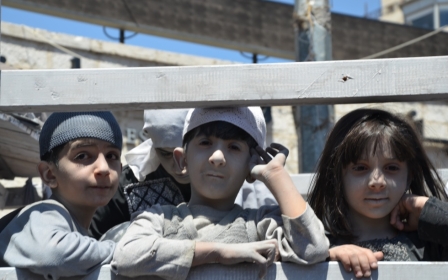Why the Nakba is bigger than the events of 1948

Palestinians and their supporters have just commemorated the 66th anniversary of the Nakba, Arabic for “catastrophe”. This refers to the expulsion of some 800,000 Palestinians (two-thirds of the population back then), and the loss of their homeland when Israel was created.
Given the multi-faceted history of Palestinian suffering since 1948, it is time to broaden the definition of the Nakba to include the many other catastrophes that have followed, some of them ongoing and even worsening. In light of the commemorative slogan “never again”, attention should be drawn to the fact that for Palestinians, it has - and is happening - again and again.
A series of catastrophes
During the 1967 six-day war, some 300,000 more Palestinians - representing about a third of the West Bank's population at the time - were driven out of the remaining 22 percent of their homeland that Israel captured. There was an increase in Jewish immigration to Israel, and the US solidified its unwavering support for its ally, as did Jewish-American organisations and communities.
Perhaps the most damaging aspect of the aftermath of the war - which puts it close to the magnitude of 1948 - is that from then on, the goalposts for a solution to the Israeli-Palestinian conflict shifted fundamentally. No longer was it about the original tragedy of 1948 - the international consensus has since focused on 1967, as if nothing happened prior.
The Lebanese civil war, which lasted from 1975 until 1990, was disastrous for the hundreds of thousands of Palestinian refugees there, who were already languishing in terrible conditions. Thousands of innocent Palestinian civilians were killed, and many more injured.
One of the most iconic massacres of the war was that which took place in 1982 in the Sabra and Shatila refugee camps, where thousands were slaughtered by a Lebanese Christian militia under the watchful eye of its Israeli allies.
Although the Palestinians were but one of many parties in the war, many Lebanese blame them for its start. The resulting increase in hostility towards Palestinian refugees there, which was already prevalent, has been a fact of life for them ever since.
The same year that the civil war ended, Iraq invaded Kuwait. The late Yasser Arafat, then-chairman of the Palestine Liberation Organisation, is portrayed as having either supported Saddam Hussein, or favoured a regional solution over Western intervention.
Either way, this led to another disaster for the Palestinians, hundreds of thousands of whom were expelled from Kuwait and other Gulf states following Iraq's withdrawal. They had been a vital source of remittances to Palestinians under occupation and elsewhere.
In another major blow, the Gulf Cooperation Council - comprising Bahrain, Kuwait, Oman, Qatar, Saudi Arabia and the United Arab Emirates - severed ties with the PLO and withdrew financial backing. Despite an apology in 2004 by President Mahmoud Abbas for Arafat's stance, Palestinians have not regained the economic status they earned in the Gulf prior to Saddam's invasion.
The US-led invasion and occupation of Iraq was yet another disaster. As well as being stripped of their residency rights, militias have targeted Palestinians “more than other minorities”, according to Human Rights Watch, adding that their security has “drastically deteriorated” and the conditions in which they live “continue to worsen”.
They are victims of “arbitrary detention, torture, killing, and ‘disappearance’”, as well as “violence, harassment, and eviction from their homes,” said HRW. “Palestinians have nowhere to flee: countries in the region (with rare, temporary exceptions) have kept their borders firmly closed to fleeing Iraqi Palestinians. And the international community has done little to help ease their plight.”
Next door, the Syrian conflict has become a tragedy for Palestinians, about 550,000 of whom lived there before the uprising against Bashar al-Assad. Almost half are now internally displaced. Up to 2,000 Palestinians have been killed and 80,000 have fled, facing miserable conditions in neighbouring countries, which have denied entry to many. Palestinian refugee camps in Syria are being besieged, bombed, starved and denied medical supplies.
“As another generation of Palestinians experiences the trauma of displacement, their situation has become, in human terms, nothing short of catastrophic and yet is often being overlooked,” Pierre Krähenbühl, commissioner-general of the UN Relief and Works Agency for Palestine Refugees in the Near East, said on 15 May during a visit to Syria.
Meanwhile, Palestinians in Egypt are being targeted and demonised by the state, the media and the public following the ousting last year of President Mohamed Morsi.
In addition, of course, is Israel’s ongoing occupation and relentless colonisation of the occupied Palestinian territories, its blockade of Gaza (in collaboration with Egypt), its raft of daily human rights violations, and its institutionalised discrimination of its Palestinian citizens.
Broadening the Nakba's definition
The above list, which is by no means exhaustive, is evidence that the Palestinians have suffered a series of catastrophes since 1948, and that the original Nakba is ongoing, with Palestine literally being wiped off the map, the number of refugees ever-growing, and their regional status under regular threat.
As such, commemorations should view the Nakba as much bigger than the events of 1948, as something that must not be simply remembered, but still actively resisted. This would serve to highlight the incredible resilience of a people who have managed to survive, strive and even thrive against so many odds.
There is also a case for Nakba commemorations taking on a regional dimension. In the first 14 years of this century alone, Iraqis experienced their own Nakba, as are Syrians now. So much for “never again”. As Holocaust remembrance has become inclusive of other tragedies - such as Rwanda, Bosnia and Darfur - perhaps Nakba commemorations should do the same.
They could serve as an apolitical reminder not just of the suffering of the Palestinians, but that of their neighbours too; an opportunity for reciprocal solidarity between those who have gone through what no people should. After all, has not the plight of one been deeply and directly felt by the other?
- Sharif Nashashibi is an award-winning journalist and analyst on Arab affairs. He is a regular contributor to Al Arabiya News, Al Jazeera English, The National, and The Middle East magazine. In 2008, he received an award from the International Media Council "for both facilitating and producing consistently balanced reporting" on the Middle East.
The views expressed in this article belong to the author and do not necessarily reflect the editorial policy of Middle East Eye.
Photo credit: A group of young Palestinians draw a Palestinian flag with their own handprints to mark the 66th anniversary of the Nakba (AA)
New MEE newsletter: Jerusalem Dispatch
Sign up to get the latest insights and analysis on Israel-Palestine, alongside Turkey Unpacked and other MEE newsletters
Middle East Eye delivers independent and unrivalled coverage and analysis of the Middle East, North Africa and beyond. To learn more about republishing this content and the associated fees, please fill out this form. More about MEE can be found here.





